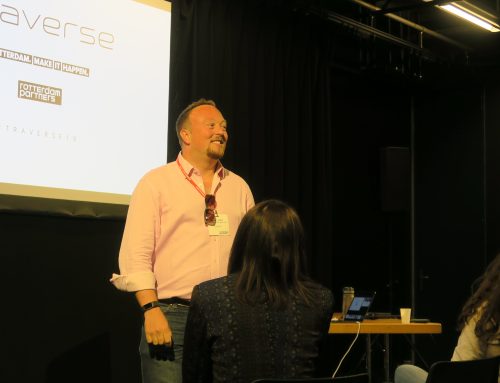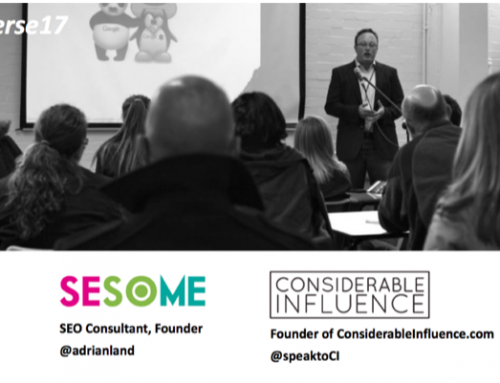Although undeniably important, link-building is just part of increasing brand awareness. Here at SESOME, we like to focus on reputation rather than just link building – we believe achieving links is just a happy byproduct of designing and delivering engaging campaigns.
Link building for its own sake used to be the preserve of the lone (and slightly myopic) SEO, and in all honesty, few purely SEO-based endeavours are likely to succeed. With the increasingly negative perception of link-building, not to mention the threat of penalties, this silo-ed approach is now neither recommended nor effective.
These days, ranking in Google directly affects share prices just as much as sales, and therefore more people are interested in it, and, whether knowingly or not, they are affecting your domain’s visibility. Therefore, if you all are working from the same domain or a set of interconnected domains, then you will need to foster a positive-SEO culture in a cross-functional team.
The good news, is that us holistic, old-timer SEOs have a fairly good grasp of many other disciplines and therefore are ideally placed to chair these groups. To do so effectively, we need to be the educator, the evangelist, the politician, the commercial-technical liaison, the strategist, the board advisor, the CTO/CMO/CFO’s personal advisor, the sounding board and the meeting attender, all the way through to the enforcer.
Other teams will also be generating links, quite often without even knowing it. This can sometimes be a good thing, but also sometimes detrimental. The best way to keep a handle on this process is to compartmentalise the different teams into cross-connecting sub-committees:
The SEO & PR team
Companies who deal in PR, those who produce useful and interesting content and especially those in innovative fields will be producing links. They may be targeting traditional media who have sites, trade press, trade mags, start-up/VC/founder titles. This means that they may not be thinking of consumer affecting strategies. Liaise with them to work hard for brand or product launch reputation and links.
One of the most significant differences between PR methods and ‘traditional link building’ is the quantity of links achieved. These days, a few good links are worth so much more than tens of average links. SEO and PR should become friends and extend any company-wide stories into more niches and segments through outreach.
SEO & Product Teams
Tesla and Apple are obvious examples of this. You make a good product, have a grand unveiling and people will write about it, from journalists to trade to fanboys. Even if you are a less sexy, B2B industry, you can still be innovative in your sector – always build in SEO requirements and produce assets to push your innovation further.
SEO & Development Teams
In recent years, SEO technical best practices have been overlooked, or at least underplayed. The ‘Content is King’ mantra has taken the focus away, especially in the mobile-first world. Educating, auditing and bugging is important, but so is being involved in the planning of all developments, as much to make business projects SEO safe as well as ones that progress our cause.
SEO & Other Marketers
Other marketers, from CRM and programmatic to paid media, should be in your extended squad, or at least they should know what you are doing. And, at best, those who have a budget for content syndication can actively help seed any content led campaigns. Your social media teams have reach and can share content quickly – if you ‘go big,’ people will talk about it.
SEO & Senior Management
Senior management can hail from many varied backgrounds, from generalist topic experts in SMEs, to solopreneurs and professional managers who are more generalists but good at bringing the right teams together. In the biggest companies, you will have a dedicated strategy team. These guys will be the ones that could change your domain name, rebrand the business or launch new business units. You need to become their advisor and definitely help them formulate any delivery plans.
Every business is different. We need to be corporate chameleons and inspire, educate, advise and do. Building a sustainable reputation takes time – there will be different groups, strategies, levels of involvement, speeds and value being built, but this is good. The chairperson position should be the orchestra conductor. And like all beautifully sounding orchestras, you need all of the players playing the right notes at the right time.















